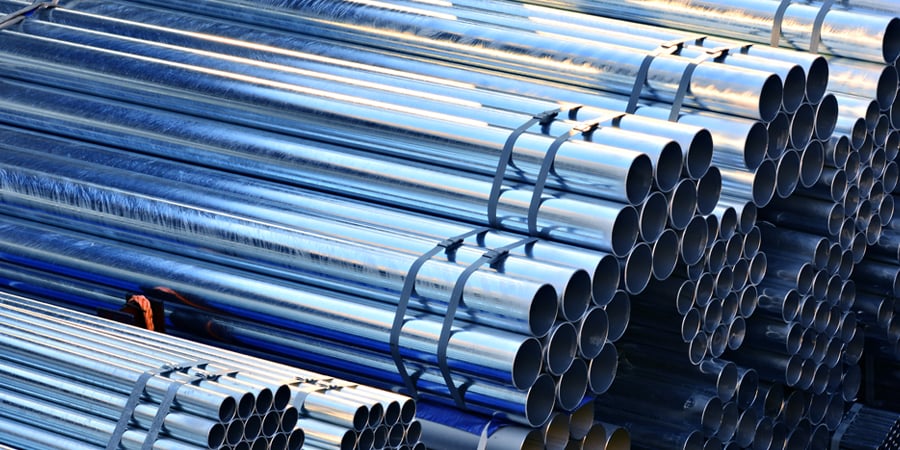On February 10, 2025, President Trump issued two proclamations (collectively, the “Proclamations”)[1] that increase tariffs on imports of aluminum products from 10% to 25%, maintain 25% tariffs on imports of steel products, and eliminate product-specific and country-specific exclusions that have allowed certain products to enter the United States without payment of these duties. The Proclamations also expand the scope of steel and aluminum products that will be subject to the 25% tariffs. This latest tariff action follows in the wake of previous proclamations imposing tariffs on steel and aluminum by President Trump during his first term in office, which President Biden retained.
Given the changes in size and scope of the duties, companies should assess their imports and supply chains to see whether the tariffs apply to new products, or increase the existing tariffs that apply to their supply chains.
Summary of Proclamations
The Proclamations further adjust import measures against aluminum and steel products that the first Trump Administration issued under Section 232 of the Trade Act of 1962 (i.e., “Section 232”). In particular, the latest Proclamations include the following:
- Increase tariffs from 10% to 25% on aluminum products, and maintain 25% tariffs on steel products;
- Expand the tariffs to cover certain downstream derivative steel and aluminum articles, with the precise products to be clarified in separate annexes;
- Eliminate country-wide exemptions that allowed aluminum and steel imports from certain countries to avoid Section 232 tariffs, which the United States granted in exchange for voluntary export restraints and other commitments, including agreements with Argentina, Australia, Brazil, Canada, European Union, Japan, Mexico, South Korea, and the United Kingdom, and an exemption granted for Ukrainian origin products because of its war with Russia;
- Terminate the exemption process that had allowed importers to seek product-specific exclusions from the Section 232 tariffs, but previously issued exclusions remain valid until their expiration date or exhaustion of the authorized import quantities.
These changes are effective on March 12, 2025, except for the termination of the product exclusion process, which had immediate effect. Some of the changes may take longer to implement, such as the new process for the U.S. Department of Commerce (“Commerce”) to consider derivative articles for the tariffs, which will involve consideration of written requests from interested parties for inclusion of specific goods. It appears that Commerce will publish a notice alerting the public as to how the tariffs apply to certain items containing steel, but are classified outside of Chapter 73 of the Harmonized Tariff Schedule of the United States (“HTSUS”).
Existing Section 232 Duties
President Trump first imposed Section 232 duties on aluminum and steel products on June 1, 2018. Section 232 allows the President to “adjust” imports into the United States if the imports undermine or threaten to undermine U.S. national security. Under Section 232, and as a result of an investigation by the U.S. Department of Commerce Bureau of Industry and Security (“BIS”), President Trump approved 10% duties on certain imports of aluminum products, and 25% duties on certain imports of steel products. The BIS investigation concluded that imports undermine the U.S. industrial base that is critical to supply U.S. defense needs. The Section 232 steel and aluminum duties later expanded to cover certain derivative articles.
At the request of the business community and Members of Congress, BIS implemented a Section 232 tariff exclusion process that exempted particular products for specified U.S. parties, which importers have used to avoid these duties. The Section 232 tariff exclusion process allowed for submissions from U.S. interested parties, including the importer and the U.S. industry, and BIS would consider whether, among other things, the U.S. industry could supply the particular product. BIS frequently granted the requested exclusion, which was specific to the requesting U.S. parties. President Trump’s latest Proclamations do away with this exclusion process.
Basis for Expansion
According to the Proclamations, the existing Section 232 tariffs are inadequate to protect national security because imports of steel and aluminum have increased, and the duties were easily circumvented. The Proclamations note trends of increasing imports into the United States of aluminum and steel from many countries, and conclude that such imports undermine or threaten to undermine U.S. national security under Section 232. The Proclamations also claim that countries that are not subject to the Section 232 tariffs are transshipment or circumvention points, allowing companies to avoid duties through exempt processing locations such as Canada and Mexico. President Trump’s Proclamation on steel also claims that the exemption granted for Ukrainian steel products actually has benefitted the European Union more than Ukraine, because E.U. producers purchase Ukrainian steel for processing and resale to the United States to avoid a tariff rate quota on E.U. origin steel.
Through the Proclamations, President Trump also directed U.S. Customs and Border Protection (“CBP”) to severely penalize any importers that use incorrect HTSUS classification codes for imports to avoid the Section 232 duties. Both Proclamations provide that CBP “shall assess monetary penalties in the maximum amount permitted by law.” The Proclamation on steel adds that CBP “shall not consider any evidence of mitigating factors in its determination.” The Proclamations also direct coordination between CBP and the U.S. Secretary of Commerce to expand, if necessary, the annexes of derivative steel and aluminum articles to address any known circumvention of the Proclamations. The importing community will thus need to remain alert to potential future expansions of the Section 232 tariffs on derivative steel and aluminum articles.
Conclusion
Companies involved with importing or purchasing aluminum and steel should consider whether the Proclamations will impact their supply chains. Dorsey & Whitney’s Government Solutions and Investigations Group can help your company consider the implications of the Proclamations. Please feel free to contact the authors of this article if you have any questions.
[1] Please see this link for the Proclamation on steel: https://www.whitehouse.gov/presidential-actions/2025/02/adjusting-imports-of-steel-into-the-united-states/; and this link for the Proclamation on aluminum: https://www.whitehouse.gov/presidential-actions/2025/02/adjusting-imports-of-aluminum-into-the-united-states/.


